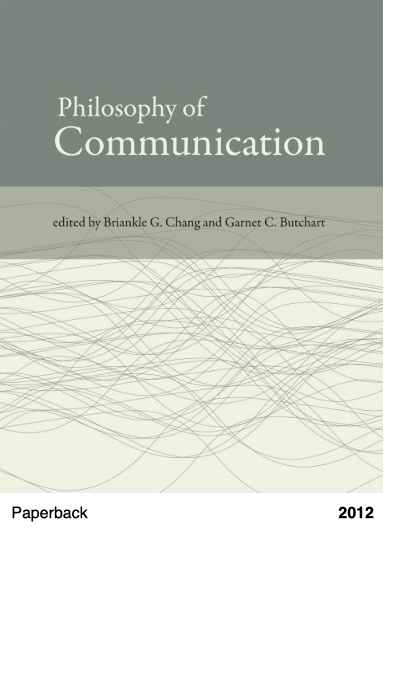 688 pages • Publisher The MIT Press
688 pages • Publisher The MIT Press
Editors B. G. Chang and G. C. Butchart
Description
Classical, modern, and contemporary philosophical writings that address the fundamental concepts of communication.
To philosophize is to communicate philosophically. From its inception, philosophy has communicated forcefully. Socrates, Plato, and Aristotle talk a lot, and talk ardently. Because philosophy and communication have belonged together from the beginning—and because philosophy comes into its own and solidifies its stance through communication—it is logical that we subject communication to philosophical investigation. This collection of key works of classical, modern, and contemporary philosophers brings communication back into philosophy’s orbit. It is the first anthology to gather in a single volume foundational works that address the core questions, concepts, and problems of communication in philosophical terms.
The editors have chosen thirty-two selections from the work of Plato, Leibniz, Hegel, Husserl, Heidegger, Wittgenstein, Benjamin, Lacan, Derrida, Sloterdijk, and others. They have organized these texts thematically, rather than historically, in seven sections: consciousness; intersubjective understanding; language; writing and context; difference and subjectivity; gift and exchange; and communicability and community. Taken together, these texts not only lay the foundation for establishing communication as a distinct philosophical topic but also provide an outline of what philosophy of communication might look like.
Table of Contents
Actio in Distans: On the Forms of Telerational World-Making
Peter Sloterdijk